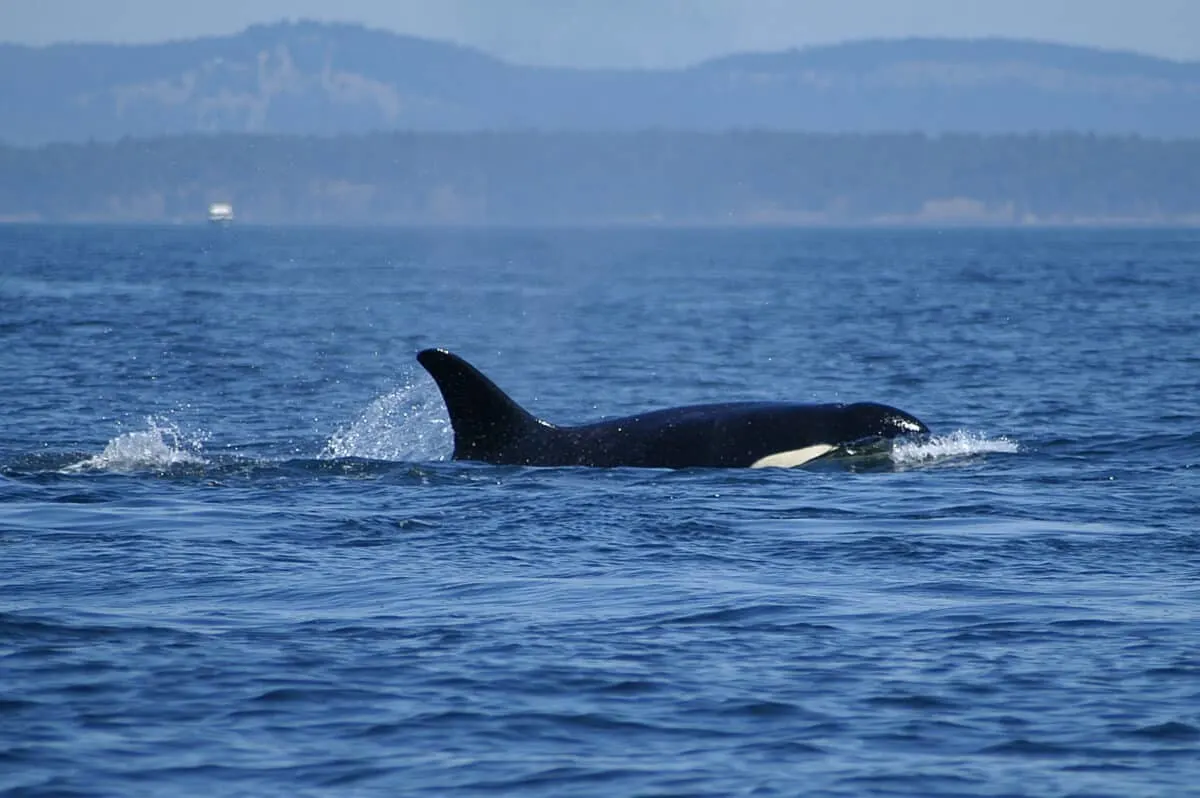Even amongst Great Whites, Tiger Sharks and Whales, one species stands out as the undisputed king – the orca, or killer whale. Renowned for their intelligence, remarkable social structures, and unparalleled hunting prowess, orcas have earned the title of the ocean’s apex predators. This article delves into the awe-inspiring world of orcas, exploring their dominance over the seas, their strategic hunting methods, and the fascinating dynamics that make them formidable rulers of the marine realm.
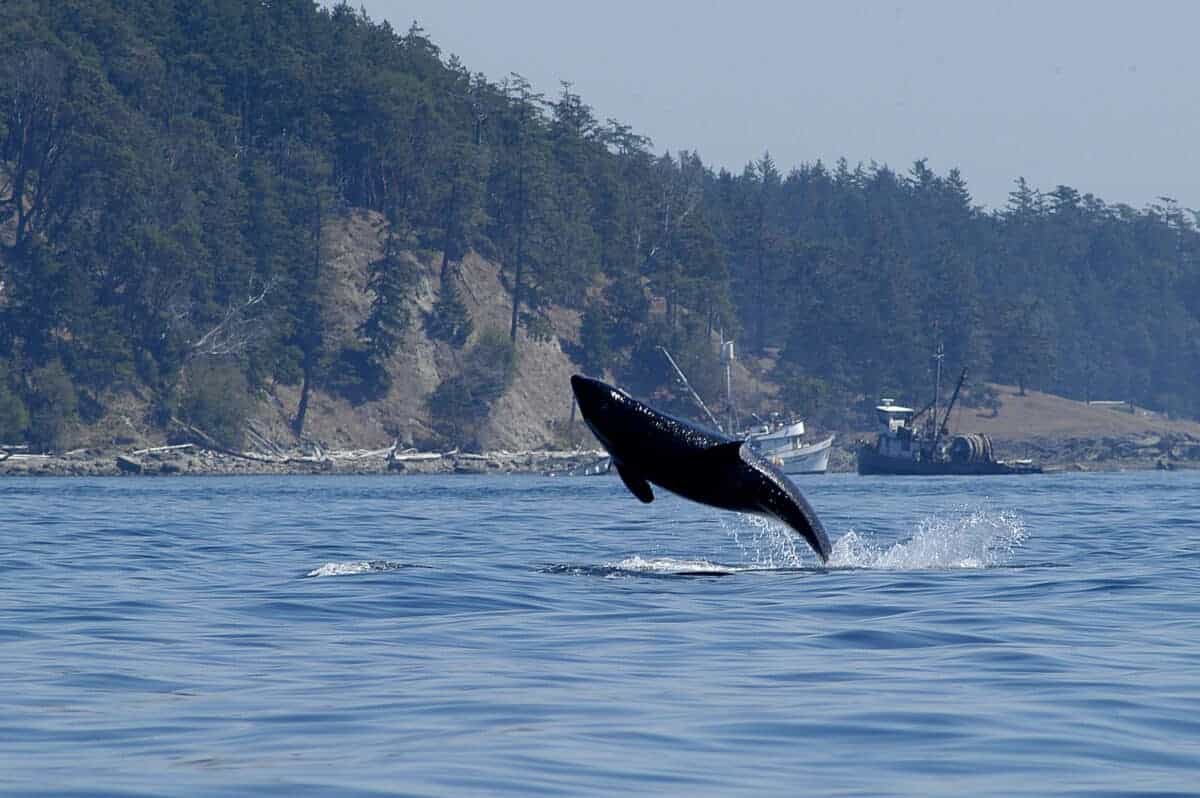
The Apex Predators of the Ocean:
Orcas, or Orcinus orca, are formidable predators known for their incredible intelligence, sophisticated communication skills, and cooperative hunting strategies. Unlike great white sharks, which are formidable predators in their own right, orcas have the ability to prey upon these sharks with remarkable efficiency. One notable example is the coastal waters off Cape Town, where orcas have been observed preying on great whites with astonishing success.
Cape Town’s Great White Predation:
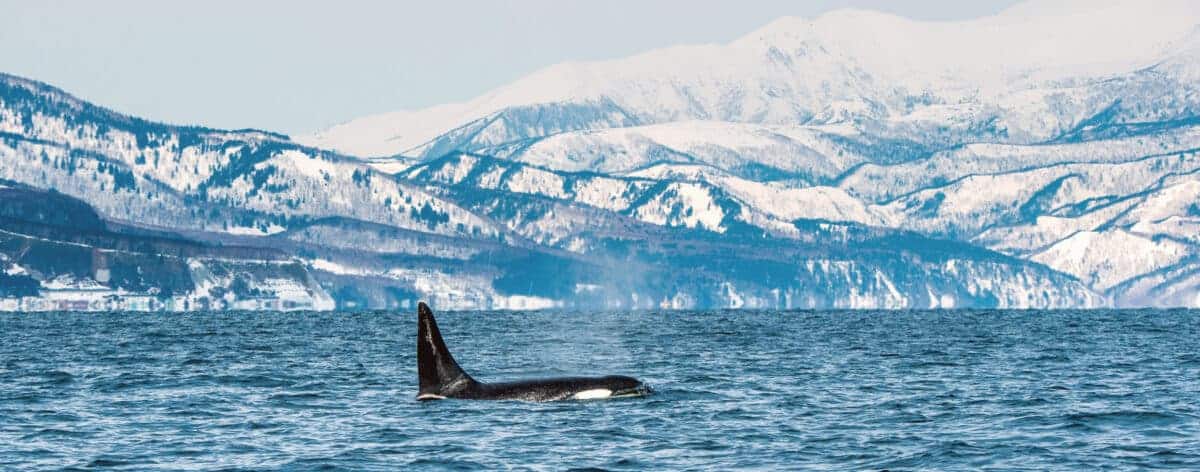
In recent years, there have been documented incidents off the coast of Cape Town, South Africa, where orcas have selectively hunted great white sharks. They’ve been observed flipping great whites upside down, inducing a state of paralysis known as tonic immobility. This tactic effectively renders the sharks defenseless, allowing the orcas to access nutrient-rich liver tissue while leaving the rest of the carcass largely intact. The reasons behind this targeted predation are not yet fully understood, but it highlights the adaptability and strategic thinking of orcas.
No Need for Hunting Orcas:
Unlike many marine species facing threats from human activities, they are not hunted for commercial purposes. However, they do face various human-induced threats, such as pollution, habitat degradation, and disturbances from boat traffic. Conservation efforts are crucial to ensuring their continued well-being, while maintaining the delicate balance of the marine ecosystems they inhabit.
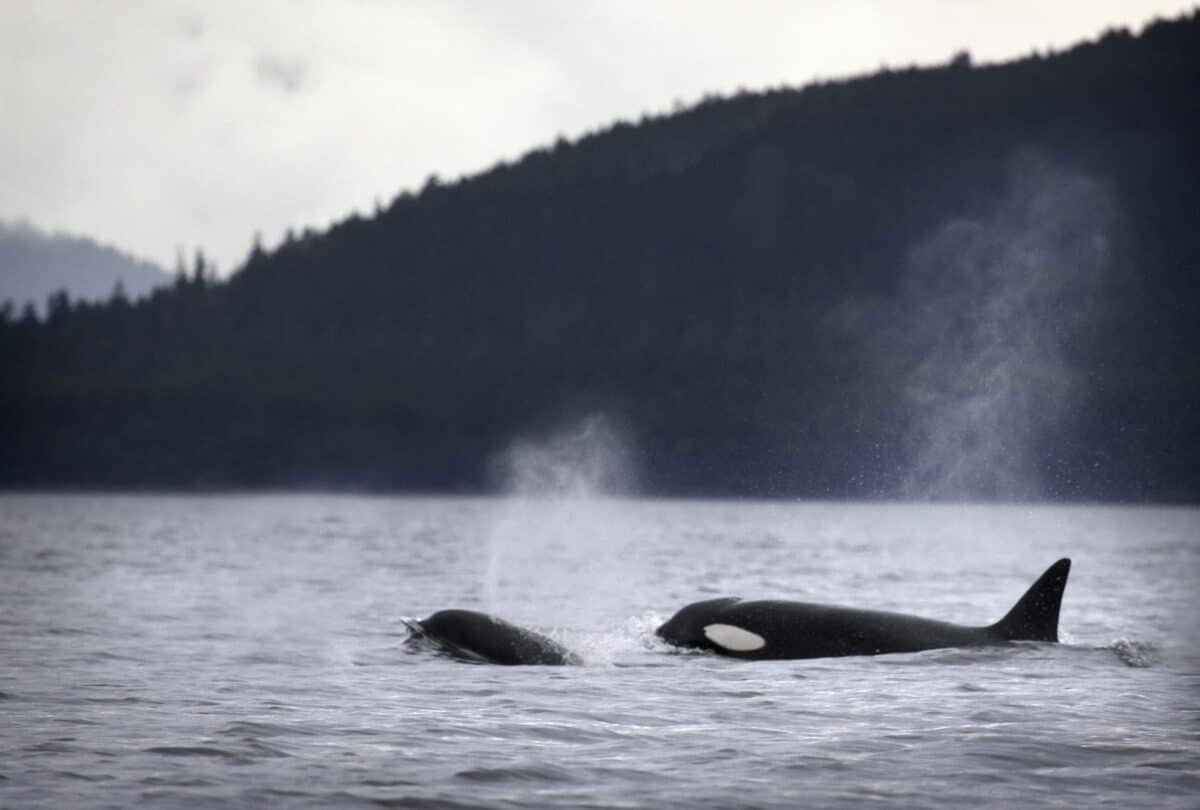
Dietary Preferences and Hunting Strategies of Orcas:
Orcas are opportunistic predators with a diverse diet that includes fish, squid, seals, sea lions, and even whales. Their ability to switch between different prey items makes them highly adaptable and capable of thriving in various marine environments. The apex predators use a range of hunting strategies, often employing teamwork and coordination to secure their meals.
Social Structure and Collaboration:
One of the most remarkable aspects of orca behavior is their intricate social structure and the level of cooperation within their pods. They live in matrilineal family groups known as pods, with individuals forming strong bonds and exhibiting complex communication. Within these pods, there is evidence of cultural transmission, where knowledge and behaviors are passed down through generations.
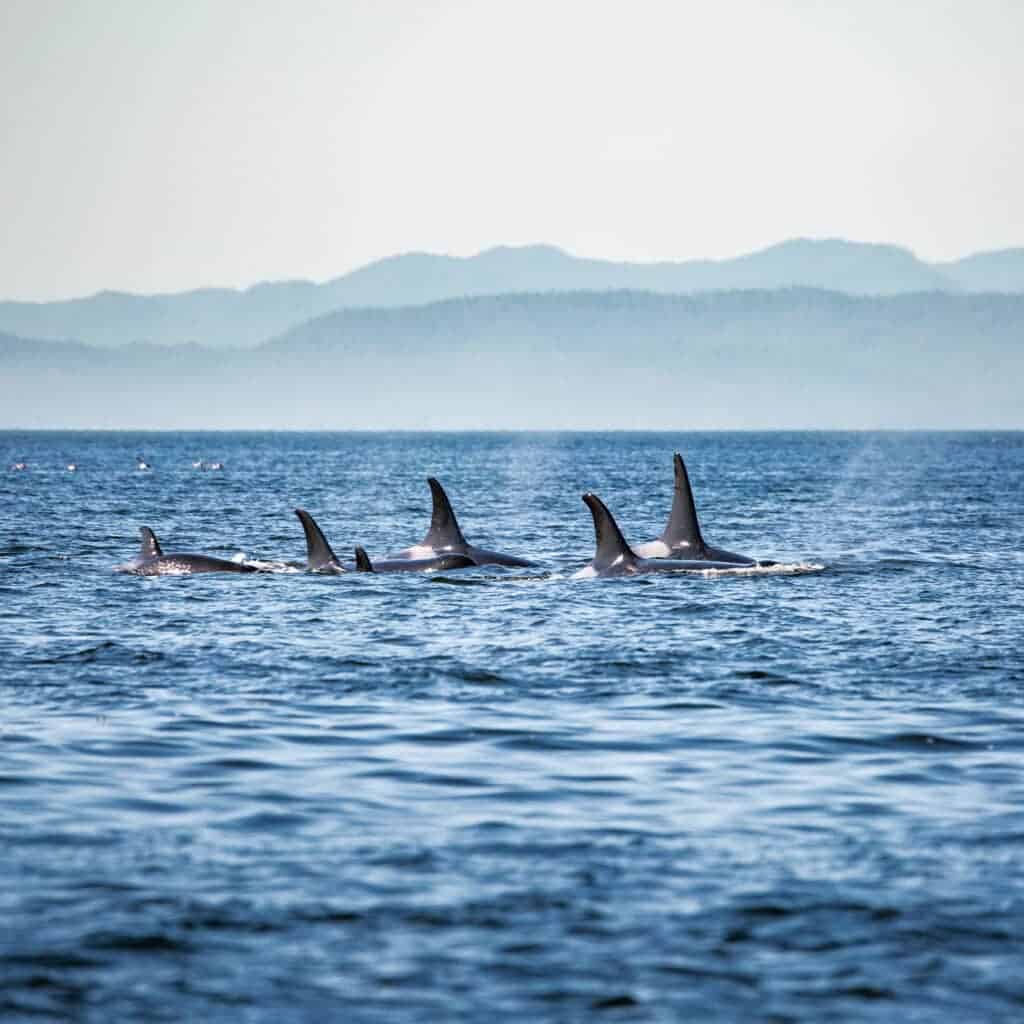
Orcas are known for their sophisticated hunting techniques, often working together to corral and capture prey. This cooperative behavior extends to the point of sharing food within the pod, ensuring the survival and well-being of all members. The cultural and social complexity of orca societies sets them apart as highly intelligent and adaptable marine mammals.
Global Travelers:
Orcas are found in every ocean on Earth, demonstrating their ability to thrive in a wide range of environments. Their global distribution reflects their impressive capacity for migration and adaptation to diverse ecosystems. They have been documented traveling thousands of miles in search of food, following migratory patterns of prey species, and adapting to changing environmental conditions.
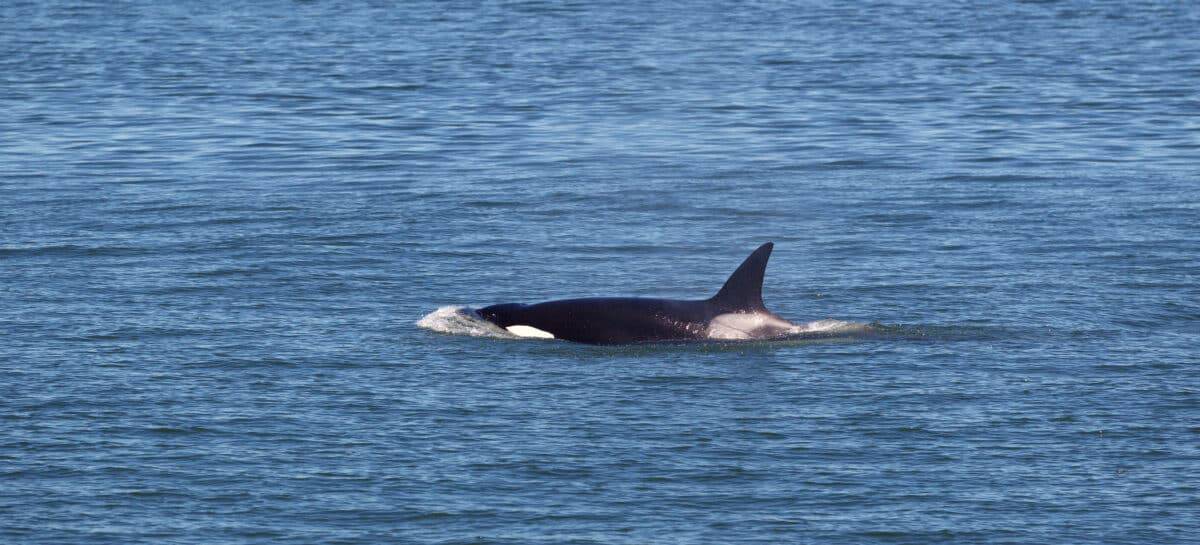
Orcas, as the undisputed kings of the seas, showcase the extraordinary intelligence and adaptability of marine life. Their role as apex predators, their remarkable hunting strategies, and their intricate social structures underscore the importance of understanding and conserving these magnificent creatures. As stewards of the oceans, it is our responsibility to ensure the continued survival of orcas and to appreciate the vital role they play in maintaining the health and balance of marine ecosystems worldwide.
Join our Forum for free today!

- Second American Killed by Elephant in Zambia This Year - July 22, 2024
- Elderly Man Kills Grizzly Bear in Montana - July 22, 2024
- Missing Cat Found Weeks Later, 40 Miles Away - July 21, 2024

